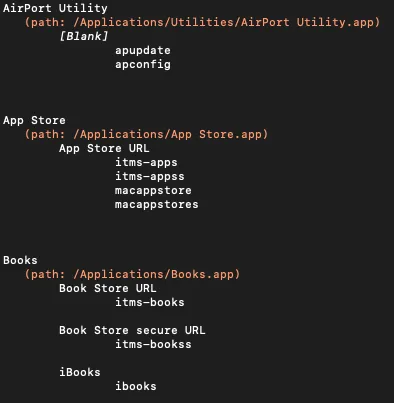我正在尝试了解与某个应用程序关联的自定义URL映射方案。我查看了一些SO讨论,但还没有得出结论。我有几个关于URL Scheme Mapping的问题:
是否有一种方法(例如特定命令或存储此信息的文件),可以获取给定苹果iPhone或Mac上URL Scheme和它们映射到的应用程序列表? (我猜答案是否定的-基于https://stackoverflow.com/a/10951866/1165727,但我想确认一下,因为这个答案相当古老)。
运行“strings”命令是发现与应用程序相关联的URL Scheme的唯一方法吗? (这基于对此答案的评论-https://dev59.com/O2025IYBdhLWcg3w76pq#5707825)。
是否有比http://wiki.akosma.com/IPhone_URL_Schemes更完整的URL Scheme列表?

- 不。
- 查看应用程序的 Info.plist 文件。
- 没有确定的列表。
- rmaddy